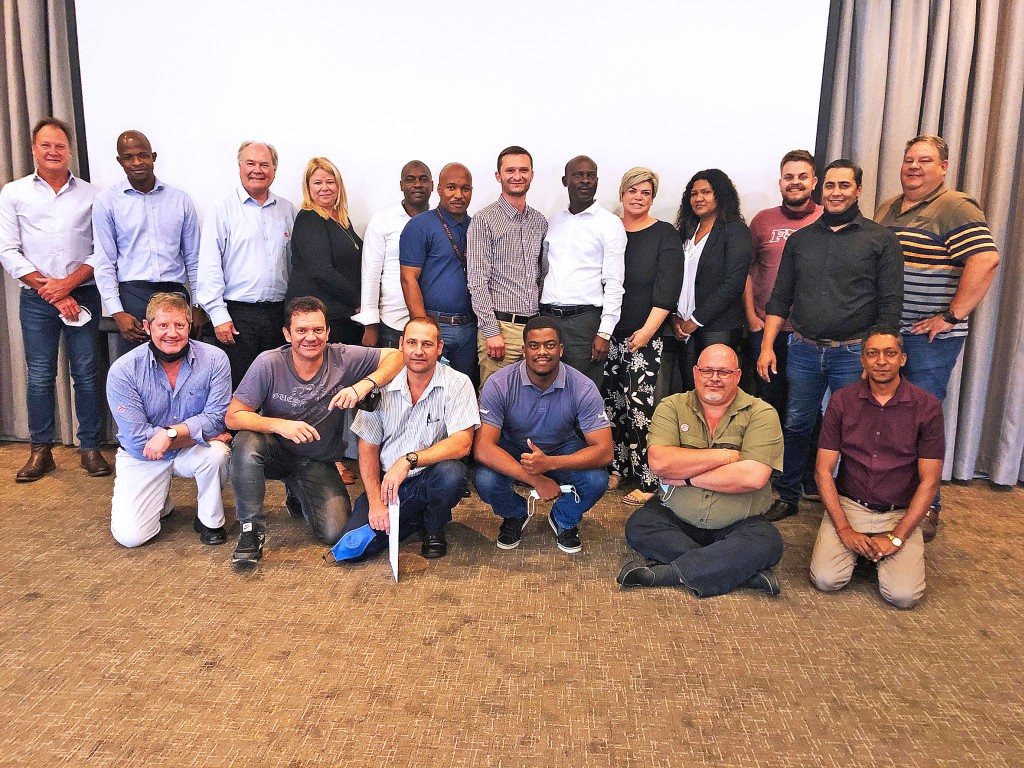Electrical Products launched its latest Elite Hunter training course with particular focus on understanding critical project requirements resulting from the disruptions to business caused by the COVID-19 pandemic.
Elite Hunter training course participants. They are (back row, from left): Rod Penaluna, Divisional CEO; Sylvester Makamu, Group HR Executive; Johan Havenga, Facilitator; Renee Mare, Nelspruit; Lucas Mchunu, Durban; Brightman Zungu, Durban; Hein Ferreira, Rustenburg; Aron Mavhungu, Genlux; Chanelle Keyser, Satchwell; Marge Hendricks, Satchwell; Farrell Pieterse, Johannesburg; Bevil Mellem, Satchwell; Otto van Jaarsveld, Nelspruit. Front row, from left: Mike Ullyett; Quinton Brittion, Overhead Line Equipment; Jacques Church, Welkom; Lutho Botya, East London; Dennis Keyter, Polokwane; Kesavan Naicker, Durban.
The Elite Hunter course, held from September last year through to March this year, was attended by a total of 14 people, comprising eight sales representatives and six managers.
The series of lockdowns the government imposed nationwide since late-March last year to contain the spread of the disease adversely affected the economy, which was already struggling to recover from the prolonged economic recession before COVID-19 hit.
“One of the biggest challenges our business is faced with are the difficulties of maintaining the manufacture and supply of product, which are hampered by shortages of materials, factory disruptions and staff shortages resulting from the detrimental impact of the pandemic and lockdowns on supply chains,” commented Mike Ullyett, Electrical Products’ Sales & Marketing Executive.
In line with these developments, the focus of the latest Elite Hunter course was changed to approach “business unusual”, which is also known within the course as “business as war”.
“The main focus in the training course has been on getting our sales force and managers to recognise the need for closer communication, involving fully understanding project challenges and providing our customers with constant feedback on the status of their orders,” Mike said.
“Setbacks and delays are often unavoidable in the current circumstances, so the best remedy is to notify our customers about them as soon as they occur and what steps are being taken to deal with them. This enables the customer to plan accordingly.
“The need for our sales staff and managers to have more regular contact with customers than under normal circumstances was strongly stressed in the course. It also provides customers with more opportunities to express their needs.”
A further aspect that was given high priority in the training course was key account management.
“Here the emphasis was placed on the need under the present exceptionally difficult business conditions to give key customers especially close and regular attention,” Mike concluded.

